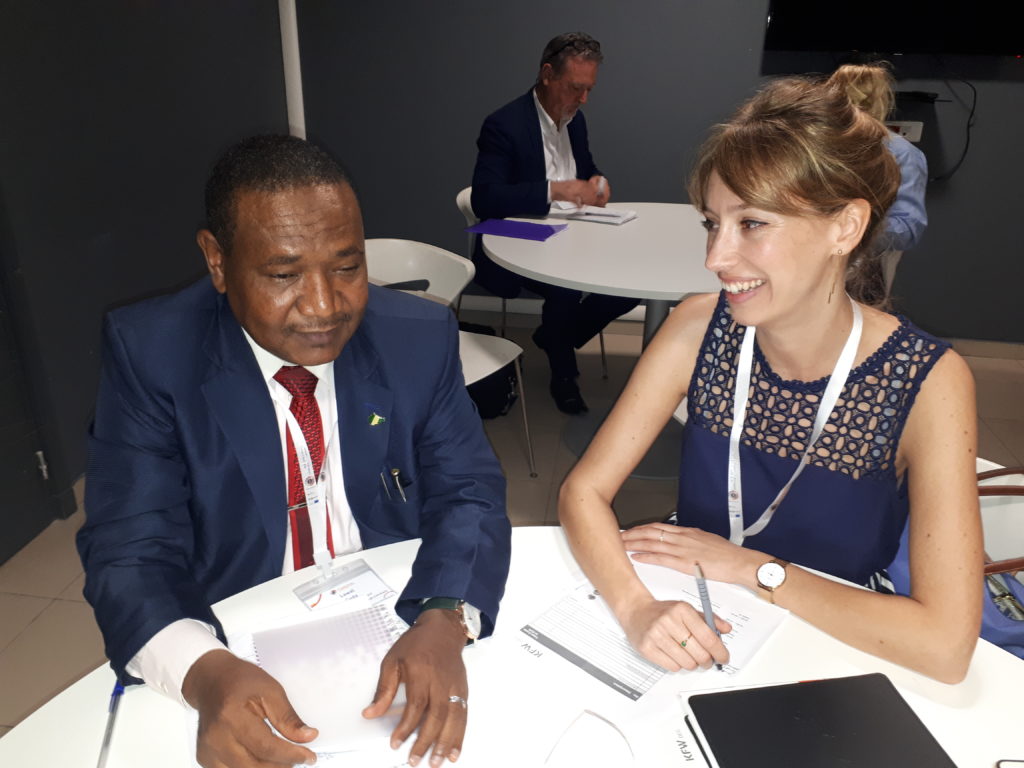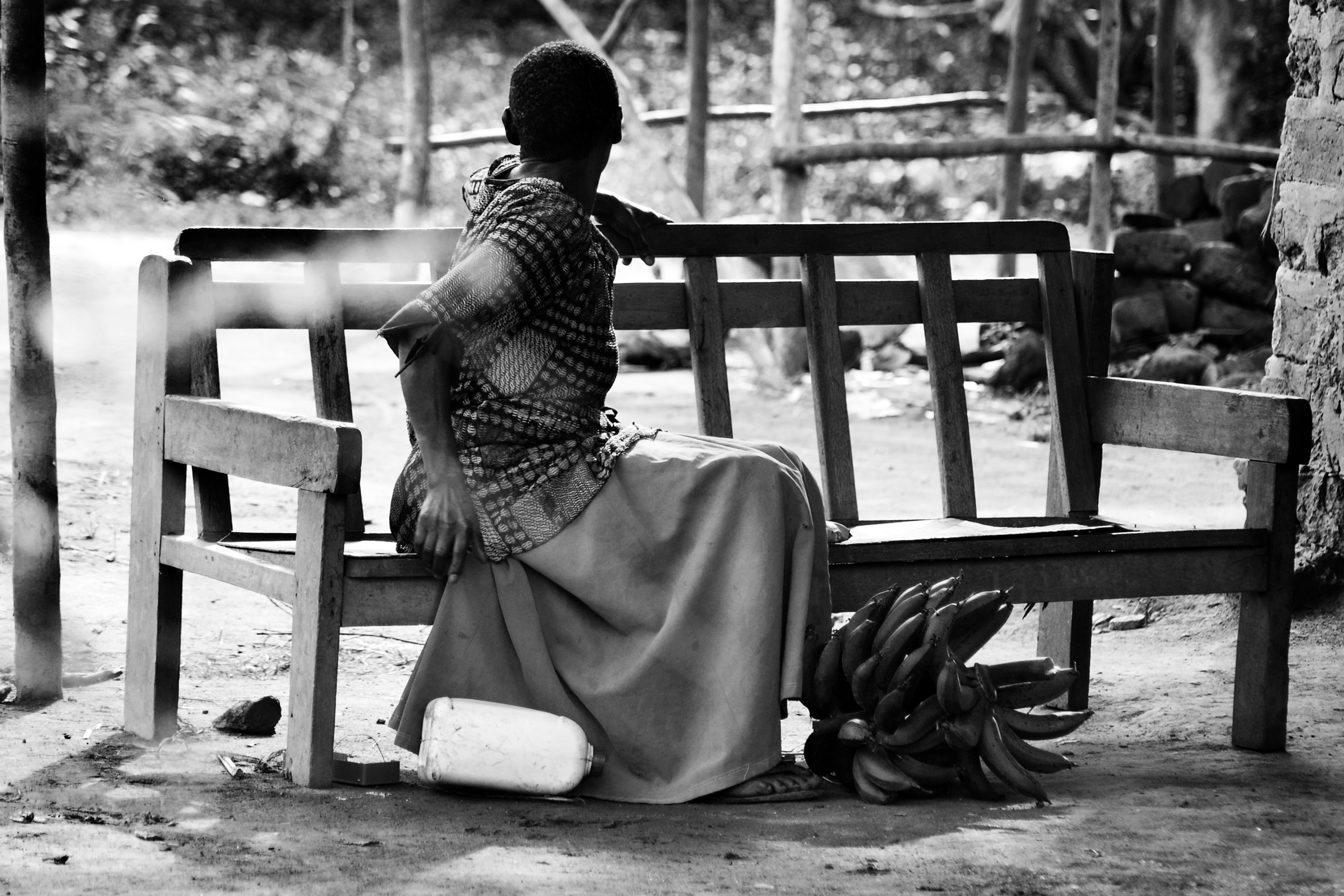Scaling up investments – thoughts from 5th ARE Energy Access Investment Forum 2019
Dr. Silvia Emili, Tags: Africa, energy access, gcf, grid extension, investments, off-grid energy, private sector, sustainable development

Earlier in March, I attended the 5th ARE Energy Access Investment Forum in Abidjan, Ivory Coast. The Forum was organised by the Alliance for Rural Electrification (ARE) in partnership with the AfDB and GET.invest, and with support from SEforALL, Club ER, ECREEE and UNIDO.
Sessions were organised over two days, with discussions over latest trends and innovations, as well as through match-making sessions between technology and service providers and potential investors. The plenary sessions included brief presentations and plenary discussions about scaling-up strategies, regulatory frameworks and impact investments, as well as business models for mini grids.
I was pleasantly surprised to see a good attendance of mini grid and software providers such as Powerhive, RuralSpark, and Flexgrid, and of local companies such as Leks Environmental and Greenado International from Nigeria, demonstrating that distributed renewable energy is no longer a niche sector, but is instead transitioning towards a mature market. Specialisation of service and technology providers demonstrate how companies are starting to tailor their business models to activate at specific segments of the energy value chain, and the presence of local companies looking for investors shows that the DRE sector is expanding beyond the usual US and Europe-based players.
The Forum kicked off with an introduction from Joao Sarmento Cunha, Manager of Renewable Energy Initiatives at AfDB, who provided a brief overview of current trends and investments in the sector in Africa, stating that: “The power sector is one of the driving forces of economic inclusion in Africa. Decentralised technologies are an opportunity to deliver at high speed and to reach scalability. Scale can be achieved through the aggregation of small projects, but how can we do that?”
Closing the energy access financing gap
As most panels at the Forum focused on financing energy access, there still seems to be a misalignment in what the private sector needs to scale up projects and activities and, on the other hand, what funders are looking for in terms of bankable investments. NGOs and development actors were addressing the elephant in the room: what is considered a sustainable and bankable project? How can investors look for 15% returns in areas where people’s ability to pay is extremely low?

In order to be able to scale, businesses need low-cost and long-term finance, however a stable revenue is required to secure these investments. The poorest customers are likely to be left out from benefiting from these services as they are often unable to meet regular payments. Expectations for private and public sector still appear to be misaligned, however it is clear that these efforts needs to go hand in hand. Additionally, the expectation that power distribution should be led by private sector and it is not going to be subsidised is far from reality and from how Western countries have reached 100% energy access in the past.
The GCF representative, Pierre-Daniel Telep, joined the conversation stating that the off-grid demand is enormous, but different projections will shape how the private sector engage in this space. An example is provided by customers living close to the grid and who are still using diesel generators in the case of grid failures. The private sector should design business models that address customer behaviour and needs while simultaneously aligning with public sector’s regulations and future projections, such as grid extension.
Interesting conversations revolved around barriers for financing energy access and what type of support is needed to overcome them. These barriers include: regulatory frameworks, lack of flexibility in the banking sector due to traditional lending models where hard collaterals are accepted (e.g. land, real estate), high interest rates, lack of capacity to respond to new business models, and overall inertia to understand that the off-grid sector has moved away from being a niche playground for impact investors.
Representatives from Renewable Energy and Energy Efficiency Partnership (REEEP) and DEG highlighted the crucial need to understand the local markets and contexts, which includes demand side and regulatory frameworks. In this regard, the representative from All ON affirmed that local talent usually translates in more sustainable investments because local entrepreneurs know their markets and customers well. Similarly, Joao Sarmento Cunha (AfBD) expressed the need to see more diversity in the market and more investments towards local companies.
Beyond electricity: the energy access ecosystem
The Forum was attended by some utilities, and as described by Sara Sabatini on Climate Home News, players in the oil and gas industry such as Engie, Shell, EDF and Total are investing large amounts in energy access companies.

These interests are well described in the new report by Wood Mackenzie Power & Renewables & Energy 4 Impact, which illustrates how moving beyond electricity and lighting services is attracting other players in the sector. There is a strong interest in evolving the utility business model beyond electricity service provision. Leading distributed energy service companies and their strategic partners are experimenting with ‘value-stacking’ add-on services like internet, water, productive appliances, financial products and services, and other retail goods.
Surprisingly, the panel discussions at the ARE Forum did not address in depth the ecosystem of energy services and how these approaches will shape future energy supply, including tackling energy efficiency, providing productive appliances, and the linkages with microfinance for example.
According to Josefina Stubbs, “Creating the ecosystem is the only way to reach scale. Electrifying villages doesn’t necessarily translate in economic development. If a fisherman has electricity but doesn’t have a refrigerator, he’s not going to advance in his economic development.”
Conclusions
The ARE Forum has demonstrated to be once again an interesting platform that captures the evolution of the energy access sector, and being held in Africa for the first time, it provided an important statement for representing the interests and voices of those closer to delivering energy services on the ground. However, I was disappointed to see how gender is still a marginal topic of discussion and how women are still underrepresented in the sector. Ute Collier from Practical Action asked, “Can we give more opportunities to women who are underrepresented in the sector, especially in technical roles?”, reflecting the lack of diversity in almost all panels, where only 9 women out of 46 were speakers across the main conference panels.
I’m looking forward to future ARE and other energy access events where these conversations will be taken even further, addressing the energy financing gap through a holistic lens where meeting the needs of rural and marginalised people is coupled with providing economic opportunities for women and communities, and where distributed energy has a key role in delivering transformational change.
Join the conversation by posting a comment below. You can either use your social account, by clicking on the corresponding icons or simply fill in the form below. All comments are moderated.